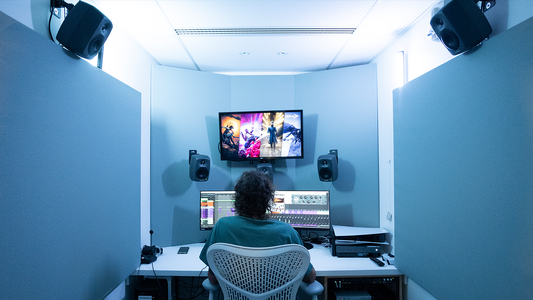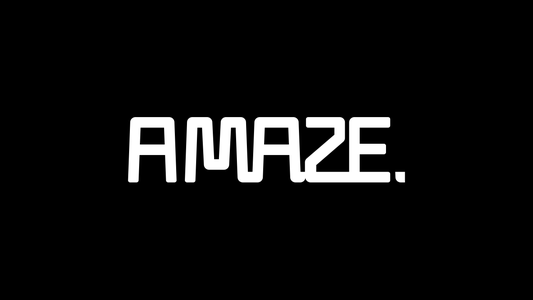Introduction
In today’s competitive gaming landscape, maintaining fairness is more than a necessity—it’s a critical component for user trust and game longevity. With the surge in online multiplayer platforms, cheating has become a widespread issue, damaging both the player experience and developer reputation. This Anti-Cheat FAQ offers a comprehensive look into game anti-cheat solutions, how they work, why they matter, and what makes the best game anti cheat truly effective.

What Is an Anti-Cheat System?
An anti-cheat system is a sophisticated layer of security integrated into games to detect, deter, and prevent cheating behaviors. These systems monitor game processes, identify irregularities, and ensure players adhere to the rules. Developers rely on them to enforce fair competition and create a positive community experience.
How Does Anti-Cheat Software Work?
Anti-cheat software operates by continuously analyzing the game environment, player behaviors, and system operations. It uses advanced algorithms, behavior profiling, and real-time data analysis to flag suspicious activities. Modern solutions integrate seamlessly into the game engine or operate as standalone monitoring agents, identifying unauthorized actions in milliseconds.
Behavioral Analysis
This technique observes player behavior to spot anomalies, such as unnatural aim precision, unusually fast reflexes, or non-human movement patterns.
Memory Scanning
The system scans the device’s memory for suspicious changes to game code or unauthorized applications trying to manipulate gameplay.
Signature Detection
It checks for known cheat software by matching specific signatures from a database, similar to how antivirus software detects malware.
What Are Common Forms of Cheating in Games?
Cheating comes in many forms, each designed to give players unfair advantages. Understanding these helps us appreciate the complexity of anti-cheat systems.
Speed Hacks
Speed hacks alter the speed of a game, either accelerating or decelerating its internal clock. This manipulation can lead to unfair advantages, such as rapid resource accumulation or simplified gameplay.
Aimbots
Aimbots automatically lock onto enemy players’ heads or bodies, enabling perfect accuracy and instant kills. These are prevalent in first-person shooters.
Wallhacks
Wallhacks allow players to see through walls or obstacles, eliminating the element of surprise and giving an unfair scouting advantage.
Auto-Clickers and Macros
These tools simulate rapid, precise inputs for grinding or combat, often seen in MMORPGs and click-based games.
Memory Editing
Some cheaters use tools to directly modify the memory of a game, changing values like health, currency, or ammunition.

What Is the Best Anti Cheat in Game?
The best anti cheat in game is one that provides real-time detection, minimal false positives, and seamless user experience. Here are attributes that define top-tier solutions:
▪ Real-Time Monitoring: Constant surveillance of gameplay behavior and memory states.▪ Multi-Vector Detection: Covers signature-based, heuristic, and behavior-based techniques.
▪ Cloud Sync Capabilities: Access to updated cheat databases and AI-driven detection models.
▪ Lightweight Architecture: Doesn’t compromise system performance or gaming smoothness.
▪ Cross-Platform Support: Functions on PC, consoles, and mobile platforms.
Why Are Cheaters Hard to Catch?
Cheaters continually evolve their methods, leveraging encryption, dynamic code injection, and virtualization. Advanced cheats can mimic legitimate behaviors, making them difficult to detect without intrusive or performance-heavy scanning methods. The best solutions evolve in tandem with cheat development trends, employing AI and machine learning to keep up.
Can Anti-Cheat Software Affect Game Performance?
Performance impact is a valid concern, especially for competitive players. Good anti-cheat systems are designed to be lightweight and resource-efficient. They optimize system calls, prioritize background tasks, and limit redundant scans. JikGuard’s solutions, for example, emphasize zero-lag security monitoring, ensuring uninterrupted gameplay.
What Makes JikGuard’s Anti-Cheat System Stand Out?
JikGuard provides a comprehensive, AI-powered solution tailored to modern cheating methods. Here are its standout features:
▪ Anti-Debugging: Detects attempts to reverse-engineer the game or bypass security hooks.▪ Anti-Bypass Protection: Prevents tools from injecting DLLs or suspending security processes.
▪ Heuristic Triggers: Flags unusual behavior even when no known signature exists.
▪ Secure API Integrations: Smooth integration into gaming platforms and engines like Unity and Unreal.
▪ Cloud Threat Library: Access to a globally updated cheat database.
Does Anti-Cheat Software Collect Personal Data?
Top-tier anti-cheat software complies with global privacy laws. JikGuard, for instance, doesn’t collect any personally identifiable information (PII) and restricts scanning to relevant memory regions. All data is encrypted during transmission and complies with GDPR, CCPA, and other regulatory frameworks.
How Are False Positives Handled?
False positives—where legitimate players are mistakenly flagged—can hurt player trust. Quality systems offer appeals processes, AI-driven risk assessments, and white-listing protocols to prevent such incidents. Community feedback and telemetry data further improve accuracy.
How Often Should Anti-Cheat Software Be Updated?
Cheats evolve daily, and so must detection tools. Anti-cheat software should receive weekly updates, at minimum, with emergency patches for zero-day vulnerabilities. Cloud-based systems like JikGuard’s benefit from instant global updates, ensuring the network stays secure in real-time.
FAQs
1. What is the best anti cheat for multiplayer games?
The best anti cheat in game for multiplayer titles is one that supports real-time detection, behavior analysis, and minimal false positives, such as JikGuard's Anti-Hack engine.
2. How does JikGuard prevent speed hacks?
JikGuard identifies anomalies in game speed manipulation using timing discrepancy monitoring and internal state validations.
3. Can anti-cheat software detect private cheats?
Yes, heuristic and behavioral scanning methods allow detection of custom or private cheats that do not match known signatures.
4. Does anti-cheat software work offline?
Offline detection is limited but possible through embedded protection layers; however, online sync enhances cheat database access and responsiveness.
5. How do players know if a game has anti-cheat?
Games usually display anti-cheat indicators on startup, and developers often disclose their use of specific protection systems.
6. Is anti-cheat software safe to install?
Yes, if sourced from trusted developers like JikGuard. Reputable solutions comply with data privacy and system safety standards.
Conclusion
With cheaters growing increasingly sophisticated, anti-cheat systems have become essential tools for preserving fairness, competitiveness, and enjoyment in gaming. Choosing the best game anti cheat involves understanding its capabilities, architecture, and compliance. JikGuard exemplifies how innovation and vigilance can build a cheat-free gaming future—ensuring everyone plays by the rules and earns their victories fairly. For developers looking for a comprehensive and seamless game protection solution, JikGuard Game Protection offers cutting-edge encryption and anti-cheat technology to ensure your game remains secure without compromising performance.
Why Choose JikGuard Game Protection?
√ On-Demand Security Assessment:
Not sure if your game needs encryption? JikGuard provides free security testing and reports, helping you identify potential risks through penetration testing and in-depth analysis.√ Minimal Performance Impact:
JikGuard’s encryption system only decrypts resources when needed, ensuring that files remain encrypted in the cache and have virtually no effect on loading speed or game smoothness.√ Seamless Multi-Channel Packaging:
Supports mother package encryption, meaning all sub-packages remain protected without requiring additional processing for different distribution channels.√ No SDK Required:
Unlike traditional solutions, JikGuard does not require SDK integration—simply run a command, and the encryption process is handled automatically.√ Ultra-Low Performance Overhead:
▪ CPU usage increase: <0.2%▪ Memory consumption: <1MB
▪ Startup time increase: <25ms
▪ Package size increase: <1.3MB
Ensuring a smooth and seamless gaming experience.
With JikGuard Game Protection, you can focus on game development while ensuring top-tier security against cheats, resource leaks, and competitive analysis. Protect your game today and keep your vision intact!




































